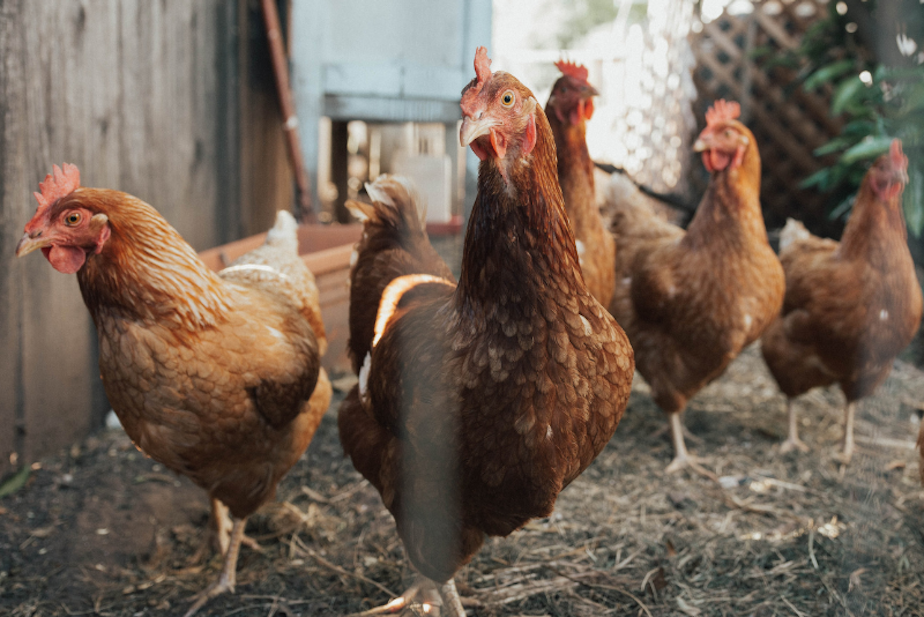Are we victims of a chicken conspiracy?

The average person eats over 100 pounds of chicken every year. That’s more than double what we ate when the USDA first started keeping track in the 70s.
The vast majority of that chicken comes from large poultry producers — think Tyson, Foster Farms, Pilgrim’s Pride.
A lawsuit by Washington Attorney General Bob Ferguson alleges that 19 poultry producers, including well known brands like Tyson and Foster Farms, conspired to artificially raise the price of chicken in Washington.
These companies provide the US with around 95% of its chicken.
"If you purchased chicken in Washington state in the last 10 years, you were harmed by the conduct of these companies and these individuals," Ferguson said.
The suit alleges that the companies destroyed supply, including “destroying broiler breeder hens and flocks,” so there would be less available for the market.
Ferguson also accuses the companies of other anti-competitive practices – like rigging bids and exchanging industry information to collude and fix prices.
It’s that whole supply-demand thing you hear about in Econ101.
When demand for a product rises to the point that supply can’t keep up, you raise the price.
These companies allegedly decided to remove supply themselves.
This lowered supply didn’t result in hugely expensive chicken for the average person.
For instance, in a similar settlement with Pilgrims' Pride, the price increase worked out to around $1 for every American. But adding all those dollars together would give you $361 million gained from price fixing.
"It became clear to us that these companies engaged in an elaborate and extensive price-rigging scheme that harmed Washingtonians," Ferguson said. "And so at that point, we are building our case to file an actual lawsuit."
So far, that lawsuit is moving forward.
In May, one of those 19 poultry companies, called Mar-Jac, settled with the state of Washington.
They’ve agreed to pay $725,000 to the state, and to cooperate with investigators.
Ferguson didn’t go into exactly what that will mean for the lawsuit, but when you’re facing 18 very large companies with significant legal resources, it can’t hurt having one providing information that will strengthen your case.
Chloe Sorvino says that this lawsuit is a sign the industry needs to change.
"Our meat industry is heading for a major reckoning," Sorvino said.
Sorvino leads food and agriculture coverage at Forbes, and has a new book coming out in December called "Raw Deal: Hidden Corruption, Corporate Greed, and the Fight for the Future of Meat."
"A lot of these price-fixing allegations have been shining a light on how problematic some of the business behind this industry truly can be," Sorvino said. "It's been zooming towards this completely untethered future for decades."
Like every part of the meat industry, chicken producers face criticism and lawsuits about their treatment of animals, of their staff, and of the environment.
The issues they face won’t end with settling a chicken price-fixing lawsuit with Washington state.


